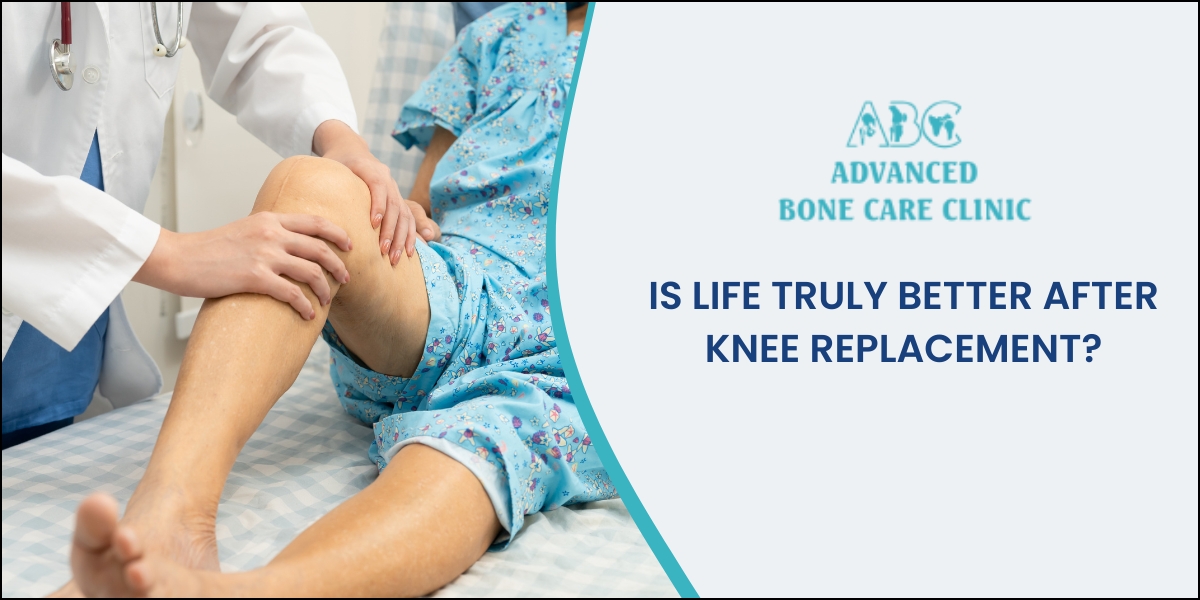For many people living with chronic knee pain, even simple daily activities like walking to the mailbox, climbing stairs, or playing with grandchildren can feel like insurmountable challenges. When conservative treatments like medication, injections, and physical therapy no longer provide relief, knee replacement surgery often emerges as a potential solution. But it’s a major decision, and it’s natural to ask the most important question: Is life truly better after a knee replacement?
The short answer, for the vast majority of patients, is a resounding yes. While the journey requires dedication and patience, the outcome is often a life transformed.
Reclaiming Your Life, One Step at a Time
The primary goal of knee replacement surgery is to alleviate pain caused by severe arthritis or joint damage. This single benefit has a ripple effect on nearly every aspect of life.
-
Freedom from Chronic Pain: Before surgery, constant pain can be emotionally and physically draining. After a successful recovery, the debilitating, bone-on-bone pain is gone. This freedom allows you to think about things other than your knee, significantly improving your overall mental well-being and quality of life.
-
Renewed Mobility and Independence: A new knee joint restores function and stability. Tasks that were once painful or impossible—such as grocery shopping, gardening, or traveling—become achievable again. This regained independence is incredibly empowering, allowing you to engage with the world on your own terms.
-
Improved Overall Health: Chronic knee pain often leads to a sedentary lifestyle, which can contribute to weight gain, cardiovascular issues, and loss of muscle strength. With a pain-free knee, patients can return to low-impact exercises like walking, swimming, and cycling. This active lifestyle promotes heart health, helps manage weight, and strengthens the body.
The Realistic Picture: It’s a Journey, Not a Miracle
It’s crucial to understand that a knee replacement provides a functional joint, not necessarily a bionic one. You may still feel weather changes or some stiffness, and high-impact activities like running or jumping are generally not advised. The recovery process itself demands hard work. The weeks following surgery involve diligent physical therapy, which is essential for regaining strength and range of motion.
However, for those who have spent years in pain, trading chronic agony for manageable post-surgery discomfort and the commitment of physio is a worthwhile exchange. The “better” life after knee replacement isn’t about becoming an Olympic athlete; it’s about rediscovering the joy in everyday movements and living life actively and without constant pain.
Visit Dr. Murtaza Adeeb – Top Knee Replacement Doctor in Pune, Maharashtra
Dr. Murtaza Adeeb is a renowned knee replacement specialist in Pune, Maharashtra, with extensive experience in performing successful joint replacement surgeries. He is dedicated to helping patients overcome chronic knee pain and guiding them through every step of their journey—from initial consultation to full recovery—ensuring they have the support and expertise needed to reclaim an active and fulfilling life. If you are considering knee replacement, consulting with a specialist like Dr. Adeeb can provide you with the personalized information and care you deserve.
Frequently Asked Questions (FAQs)
1. What is the downside of knee replacement?
The main downsides include the risks of major surgery (infection, blood clots), a significant recovery period requiring months of physical therapy, and potential limitations in range of motion. Some patients may also experience lingering numbness around the scar or hear occasional clicking in the new joint.
2. What is the quality of life after a knee replacement?
Studies consistently show a dramatic improvement in quality of life. Most patients report a significant reduction in pain, a major increase in mobility and function, and a greater ability to participate in social, recreational, and daily activities, leading to higher overall life satisfaction.
3. How long does it take to walk normally after a knee replacement?
Most people can walk with a walker within a day or two after surgery. Transitioning to a cane typically happens within 2-4 weeks. While you will be walking, “normal” walking without a limp can take anywhere from 6 weeks to 3 months as your muscles strengthen and swelling subsides.







